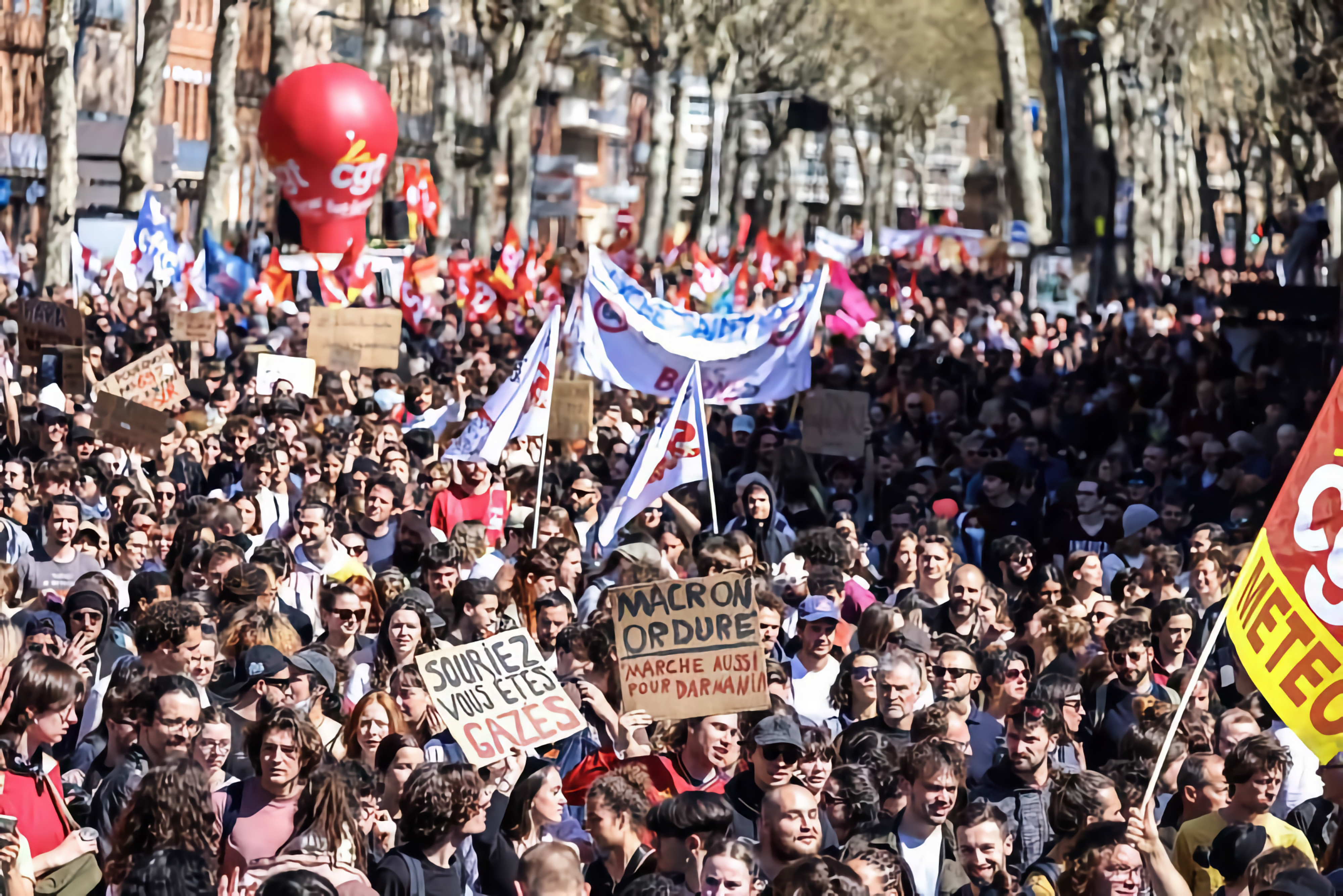


Over the last month, there have been widespread demonstrations in France and Israel, leaving the future of both nations uncertain. Against the backdrop of the ongoing conflict in Ukraine and constant anti-China rhetoric, citizens in these two United States allies have taken to the streets to protest various policy reforms. While protests are a common occurrence in many countries, the response from Western media towards these events has been dissimilar to the reactions seen in so-called “rogue” nations. In the case of Iran, for example, immediate calls for “regime change” were made following protests earlier this year. However, no such calls have been made for the overthrow of Macron or Netanyahu to liberate the French or Israeli populations. Despite the contrasting reactions, the governments of France and Israel remain two of the United States’ most significant allies, with the stability of Israel being particularly crucial to the US’s political influence in the Middle East.
In France, the populace is in uproar over President Macron’s proposed referendum to increase the retirement age from 62 to 64. The initial demonstration against this change occurred in mid-January, with 1-2 million people across the nation and 80,000 in Paris alone. Many deem this maneuver by Macron as autocratic since it is being enforced without public endorsement. One of the most prominent labor unions in France, the French Democratic Confederation of Labor, is spearheading many of the protests. Its president, Laurent Berger, stated in a recent tweet, ““By resorting to [constitutional article] 49.3, the government demonstrates that it does not have a majority to approve the two-year postponement of the legal retirement age.” Macron seems to be alienating himself politically, with his only supporters being the French elite who endorsed his re-election against Marie Le Pen. Many believe that he was only chosen due to apprehension of the right-wing Le Pen, and not due to confidence in his policies. As turmoil engulfs France, many French people are anxious about their future. For example, a 28-year-old insurance salesman, Mohamed Belmoud, expressed, “I’m worried for France. Because people really hate Macron, we hate him, and we’re only at the beginning, we have four more years. He continued being top-down. The French need to see more compromise.”
It has now been four months since Macron used his executive authority to force through an unpopular policy, and the French people continue to pressure the government to reverse it. The Council on Constitutional Affairs of France is investigating whether Macron’s use of constitutional power was lawful, and a decision is expected by April 14. In anticipation of this decision, many labor unions are already calling for mass strikes and protests on April 13 to exert as much pressure as possible. It is likely that the French government can expect continued protests until then, and depending on the outcome of the investigation, this may just be the beginning of civil unrest.

Similarly to Macron, Benjamin Netanyahu is confronting large-scale demonstrations over proposed reforms. Netanyahu and his coalition government have put forth changes that would restrict the authority of the Supreme Court to overturn the legislative and executive branches. The proposals consist of depriving the Supreme Court of the capacity to investigate the Basic Laws of Israel, which outline the country’s constitution, and empowering the pro-Netanyahu Parliament to reverse any Supreme Court verdict. Those opposing the proposals are apprehensive that it grants excessive power to Netanyahu and the Parliament while simultaneously depriving the Supreme Court of the ability to execute checks and balances. Netanyahu’s standing has already been marred by the unending corruption scandals and widespread protests during the COVID-19 pandemic. Unlike Macron, he has responded to his political predicament by suspending the verdict until the following Parliament session, announcing, “I will turn every stone in order to find a solution. We are in the height of the crisis that is threatening our basic unity.”
It has been argued that Western media and policymakers demonstrate selectivity in their use of the term “regime change,” frequently employing it to advance their imperialist agenda. If the same number of demonstrators in France were protesting in Iran, Russia, China, North Korea, or any other so-called “rogue state,” the media coverage would most likely differ. In contrast, due to France and Israel’s affiliation with the United States, the most we can anticipate is a statement from President Biden expressing “concern” over the unrest in Israel. This illustrates that the notions of “human rights” and “democracy” are frequently evoked to enforce imperialistic and inhumane measures on countries that are endeavoring to achieve their own autonomy.